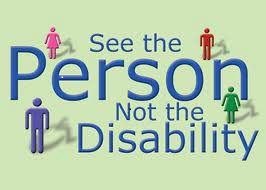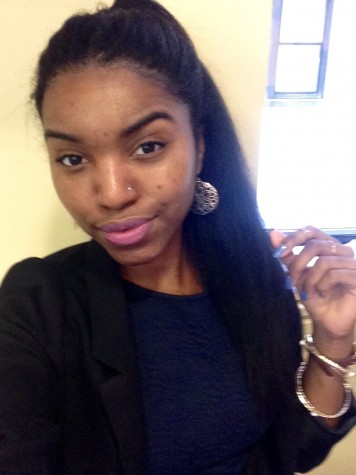(dis)Abilities Awareness Week Breaks The Stigma Surrounding Mental Health

Sasha Baranov wakes up every morning ready to tackle the long yet productive day ahead of him. Within the first semester of his freshman year, Baranov has become heavily involved on and off campus.
At Mercy, he is the President of the Model United Nations (UN), Parliamentarian of Student Government Association, and member of the First Year Council. Outside of Mercy, Baranov is a member and volunteer of the United Nations Association of the United States of America Westchester Chapter Young Professionals.
While going through his day, Baranov remains focused and driven. Nothing is able to stop him, not even the fact that he is suffering from Post Traumatic Stress Disorder (PTSD) and Obsessive Compulsive Disorder (OCD).
Post Traumatic Stress Disorder, also known as PTSD, is a psychiatric disorder that can occur following the experience or witnessing of a life-threatening event such as military combat, natural disasters, terrorists incidents, serious accidents, or physical or sexual assault,” according to ptsd.ne.gov. Baranov lost both parents at a very young age and was subsequently placed in foster care. Over the years, he was bounced from one home to another and witnessed a multitude of traumatic experiences within the system that has stuck with him. As a child, Baranov had nightmares and anxiety. Years of witnessing horrific experiences caused him to always feel as if “there was something on his chest.”
Clinically diagnosed at 14 years old , Baranov learned that he had PTSD and OCD. The symptoms associated with OCD include the overwhelming urge to repeat certain rituals or behaviors, which can cause distress in everyday life, according to the National Institute of Mental Health.
In the beginning, coming to terms with his diagnoses was challenging for the young teenager.
“I was perplexed. At 14 years old, I didn’t know what this was so I did a lot of research,” Baranov said.
Researching PTSD and OCD allowed him to reflect on himself, the mental health system, and if he would let the diagnoses hinder the capabilities that he still has. Despite the everyday struggles, Baranov chooses to be more than just his diagnoses.
“I am no less of a person. I am not my disability. I am not PTSD. I am Sasha.”
There are many students like Sasha Baranov who choose to be more than their disabilities and the Office of ACCESSibility took notice of this. They wanted to shed light on the topic of disabilities and show that there is more to a person than their challenges. During Oct. 12-16, the Office of ACCESSibility had a (dis)Abilities Awareness Week, hosted four events, therapy dogs visiting the campus and a mental health presentation on the Dobbs Ferry campus. All events raising awareness about disabilities and how to lessen the stigma surrounding it.
The name of the week was purposely changed to (dis)Abilities to put the focus on the word “Abilities” for what people can do, not what they cannot.
Makeda King, Director of the Office of ACCESSibility and the International Students Office, discussed the purpose of the events.
“We’ve been trying to intentionally change campus culture and get rid of the stigma around disability,” King said. “This is part of the reason why we changed the name of the office to the Office of ACCESSibility instead of Disability Services.”
Throughout the week, four events dedicated to mental health and disabilities took place, all having mixed attendance.
On Monday, the Health and Wellness Center hosted a presentation discussing mental health and the resources available to those who may need it. It was a full house of 100 Mercy students attending the event in the Rotunda.
The following day, the movie screening and discussion of Emmanuel’s Gift was held in the Vitale Life Skills Lab. The documentary tells the story of 27-year-old Emmanuel Ofosu Yeboah, born with a deformed leg. People with disabilities are often disdained or murdered at birth in Africa, but Emmanuel was determined to be part of the society. Emmanuel received a bicycle due to a grant for handicapped athletes. He was able to travel to America to receive a prosthetic leg and spread awareness of human rights for people with disabilities. After the film, a discussion with students and the Office of ACCESSibility was supposed to happen but was cancelled due to lack of student attendance.
On Wednesday, students were encouraged to attend the Managing Test Anxiety in the Larry Bone Room in Dobbs Ferry. The hour event was dedicated to teach students how to “recognize, reduce, and prevent test anxiety” as seen on the Mercy College Instagram page. Once again, students were not present at the event.
However, the ever popular therapy dogs closed out the week with over 120 students in attendance to play with some furry friends. According to helpguide.org, “Playing with a dog can elevate levels of serotonin and dopamine, which calm and relax.” Mercy students were able to take a breather from classes, enjoy time with therapy dogs, and find an outlet to alleviate stress.
The mixed attendance caused the Office of ACCESSibility to evaluate the week, even though the promotional strategies were the same for all events.
“We’re really looking critically at the type of events we are doing and other ways to get students there. We’re trying to get creative and figure out what to do next time,” King said.
While the students, faculty, and staff were learning about disabilities at the events, simultaneously, the Office of ACCESSibility posted interesting facts about celebrities who have disabilities on Instagram. Will Smith – actor, rapper, and Academy Award nominee – has Attention Deficit Disorder, also known as ADHD. The fact was followed by, “We are defined by our abilities, not our (dis)Abilities.” According to the National Institute of Mental Health, the symptoms of ADHD includes, “Difficulty staying focused and paying attention, difficulty controlling behavior, and hyperactivity.”
Macy Gray – singer, actress, philanthropist, and Grammy winner – has Bipolar Disorder. The causes include, “unusual shifts in mood, energy, activity levels, and ability to carry out day-to-day tasks” the National Institute of Mental Health states. Many students had not known these facts about Smith and Gray. This shows how success is still achievable despite the disability someone may have.
The main goal of (dis)Abilities Awareness Week was to show that everyone has things that they can’t do or are challenging for them. Awareness about disabilities start with how common it can be, the shapes and forms that it can take, and understanding that not all are physical and seen.
Therefore, (dis)Abilities Awareness Week will be held annually to continue to spread knowledge, empathy, and consideration about disabilities around the Mercy community.
Students with disabilities can be self-sufficient but all the while, some can still use a helping hand. “Did you know that Automatic Door Openers are battery operated?” as mentioned on the Mercy College Instagram page. So, reserving the battery power for those who may need it is a way to show awareness and consideration.
If you have any questions regarding disabilities, visit the new office location in the Student Health and Wellness Center in Main Hall, Room 109. All students, faculty, and staff are welcomed to stop by.

Shantal Marshall is from Brooklyn, New York and majors in journalism at Mercy College. Her hobbies include reading O magazine, listening to music, and...







